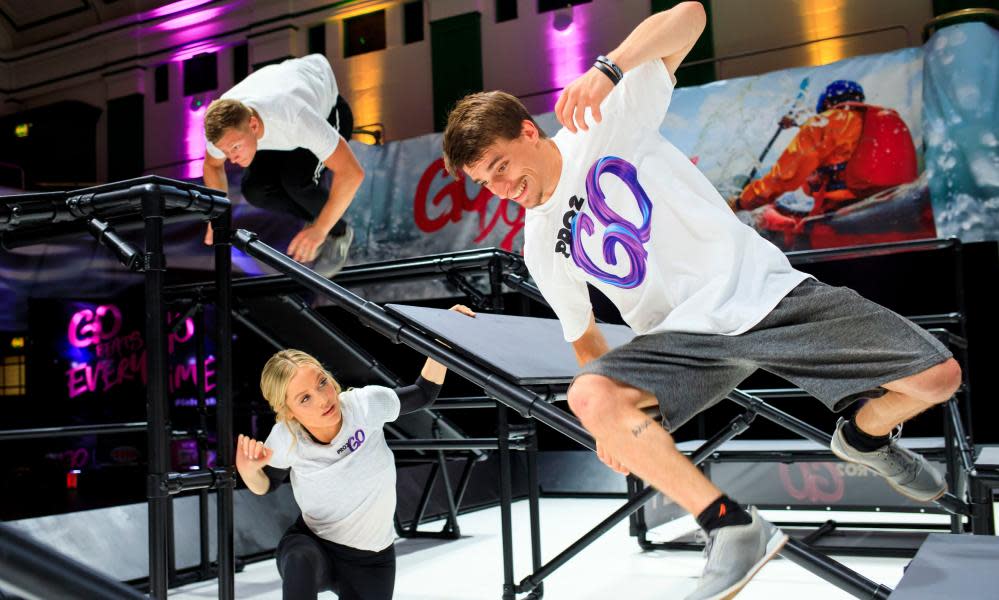Tag escapes playground as Channel 4 pursues viewers with new show

The BBC shows Wimbledon, and Sky Sports has the Premier League – but now Channel 4 is trying to muscle in on the competitive world of sports rights by televising the playground game tag.
The broadcaster has confirmed it will show highlights of the 2019 World Chase Tag championships, which are due to be held in London this weekend, in the belief that audiences will be hooked on the “superfast, action sport”.
Containing elements of parkour, Chase Tag sees one chaser and an evader compete in an arena filled obstacles, which players can use to evade being tagged. The chaser has 20 seconds to catch their opponent and prevent them from scoring a point.
The format has proved to be popular on YouTube, where matches are attracting millions of viewers. The professionalised version of the game was developed in the early 2010s by British brothers Christian and Damien Devaux, making it one of the few global competitive sports to be administered from Berkshire.
They are hoping that additional media coverage of the event at York Hall in Bethnal Green will help spread the game around the world. Channel 4’s coverage will be presented by Vick Hope, who appeared on last year’s series of Strictly Come Dancing and also presents programmes for Capital FM.
Channel 4 has often taken a punt on new sports that other broadcasters are reluctant to touch, introducing audiences to American football in the 1980s and taking a bold decision to buy up the rights to show the Paralympics in 2012 – which proved to be a ratings success and also spawned the hit chat show The Last Leg.
However, there may be cultural considerations to take into account. While Channel 4 is following the lead of the sport’s controlling organisation in calling the game “tag”, people living near the broadcaster’s new Leeds HQ are more likely to call it “tig”, potentially challenging the organisation’s commitment to promoting regional voices.
The many different names of the game – also known as “it”, “tick” and “dobby” – have led to attempts to map the variations across the UK.

 Yahoo News
Yahoo News 
